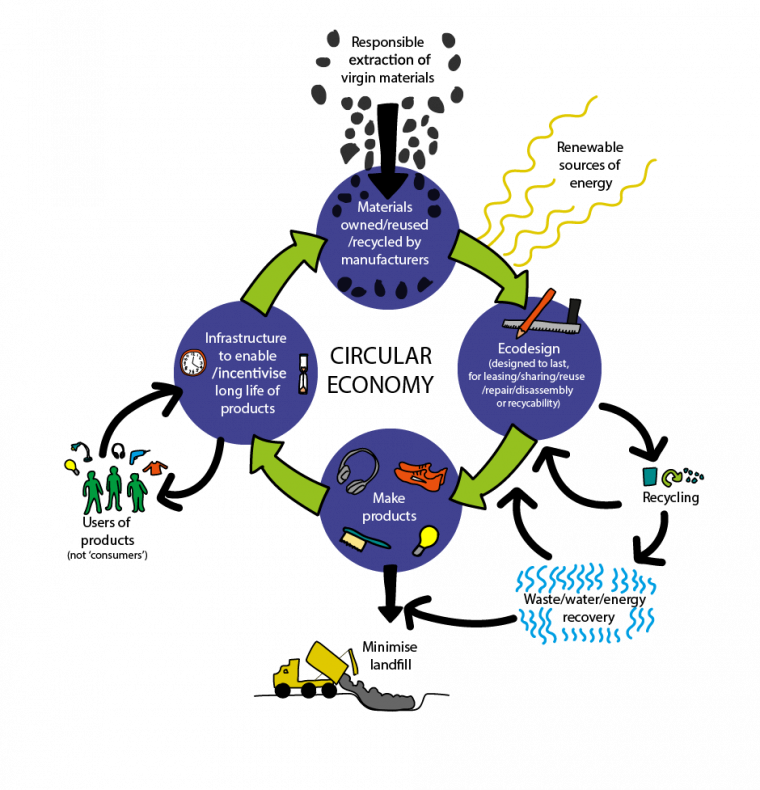Championing the end of waste
A move to a ‘circular’ economy is a vision that the North London Waste Authority (NLWA) and increasing numbers of organisations including the Ellen MacArthur Foundation are championing as a solution to allow us to live comfortably yet sustainably on our one and only planet.
This coming week, from Monday 14 to Friday 18 June, to celebrate #CEweekLDN, London’s fourth annual circular economy showcase, hosted online by ReLondon, NLWA has talked to three ground-breaking organisations working in north London about what the circular economy means to them.
Circular Economy Talks
We spoke with Library of Things, Traid and The Restart Project:
What is the ‘circular economy’ and how can it help transform the health of our planet?
Since the Industrial Revolution, most countries around the world have followed a ‘take-make-waste’ or linear economic model. Producers extract raw materials from Nature, process those materials to create a product, which is packed and transported, sold and used, and then disposed of at the end of its life.
It’s an economic model that has brought many benefits including greater prosperity, technological advancement, and choice.
Unfortunately, ‘take-make-waste’ has major hidden costs in terms of pollution and a depletion of nature. These ‘hidden’ costs are hardly ever accounted for in a product’s price, a company’s profit margin, or a country’s GDP. Under a ‘take-make-waste’ model, a tree has greater value when it is cut down than when it is providing shade, homes for wildlife, and absorbing carbon dioxide. The consequences of this economic model are colliding to give us:
- The Climate Emergency
- Pollution in all forms including the tsunamis of plastic in our oceans
- The vast loss of natural habitats and creatures. Biodiversity is our Earth’s – and our own – life support system.
However, don’t despair! There’s no need to go back to the Stone Age to stop these catastrophes. We can still have all our hearts' desires (within reason, of course!) if our governments, corporations, entrepreneurs, and we, as individuals, build the foundations for an economy:
- Where waste and pollution is designed out of product manufacture
- Where all resources and materials are never chucked away but are reused for as long as possible or reinvented and recycled to create new things.
- Where all products can be easily repaired or reused.
- Where we share or rent more (power tools, cars etc) than buy especially if we only need a thing irregularly.
- Where nature is protected and re-generated and its value incorporated into GDP.
This is called a circular economy.
A circular economy will keep precious materials in use for much longer and accelerate the invention of pioneering new products designed and made without carbon intensive, ecologically damaging materials.


